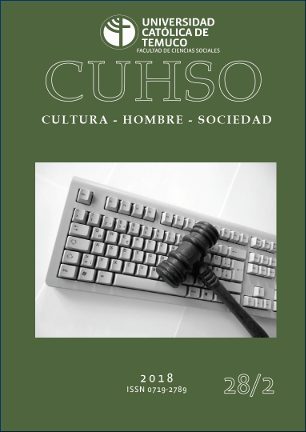Abstract
The goal of this paper is to determine how the network effect and the participatory gap affect the use of ICT tools in citizen political activity. For this work, as a first section, we present a theoretical foundation that serves as a frame of reference to support the use of software applications in political activity. A second section will define the concepts of "digital divide", "participatory gap" and "network effect", factors which are necessary to establish the willingness of users to utilize a software technology and / or the availability of technology accessible to political users. The third part will chronologically show the use of different ICT tools in Chilean political action and also describe a techno-political grouping. A fourth section performs an analysis that determines how the network effect and the participatory gap affect the use of applications. We conclude that there is a significant digital gap in the use and implementation of specific self-managed applications, which tends to contain alternative options, because of the network effect that concentrates users in only a few transnational Internet companies. However, it is possible to observe small political organizations that are willing to use alternative self-managed software applications, presenting in the future participatory gap that can give comparative advantages to a group of activists or politicians over others.

This work is licensed under a Creative Commons Attribution-NonCommercial-ShareAlike 4.0 International License.
Copyright (c) 2022 Alejandro Mauricio Mellado Gatica

